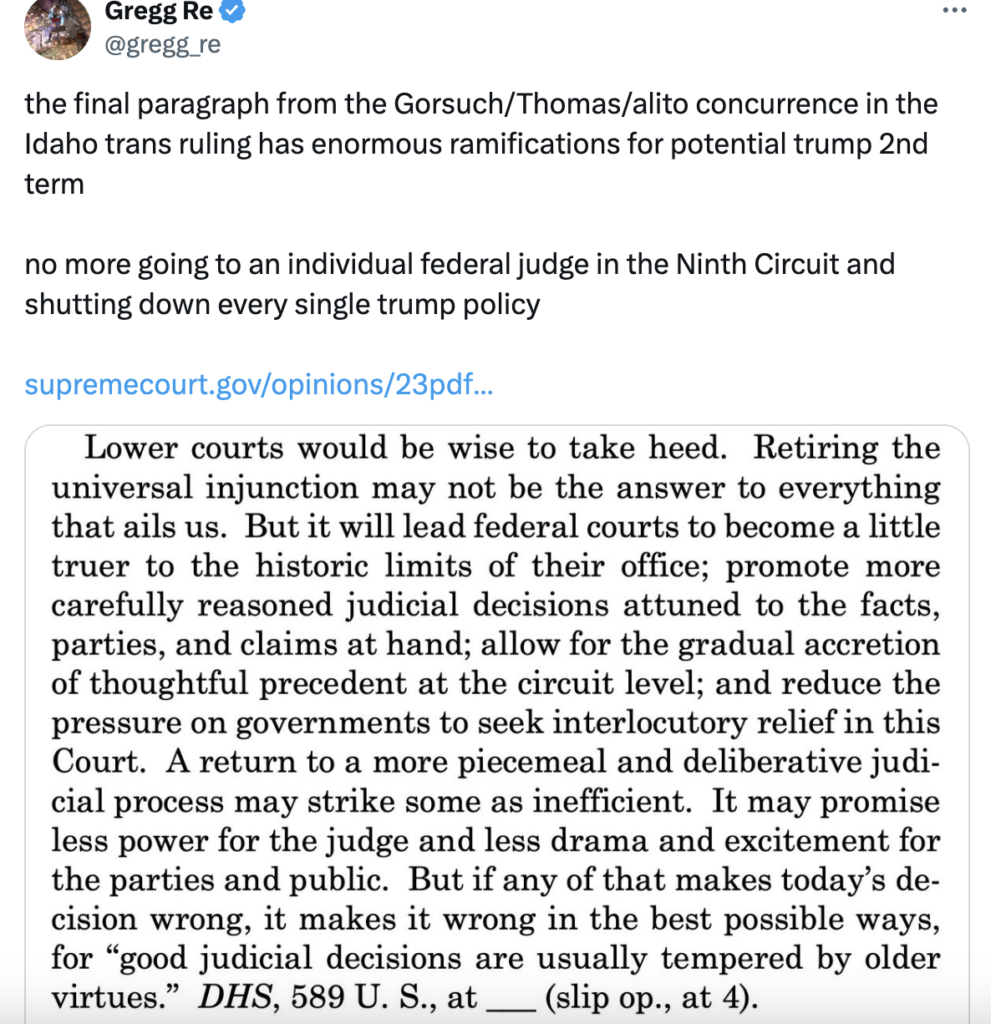SCOTUS Gives Idaho The Go-Ahead To Enforce Law Criminalizing Child Sterilization, Mutilation

Image CreditFDRLST/Canva
The U.S. Supreme Court on Monday granted Idaho’s request to partially stay a lower court injunction that previously prohibited the state from enforcing its law criminalizing child sterilization and mutilation.
The Vulnerable Child Protection Act, passed by the Idaho legislature and signed into law in 2023, ensures those who participate in the physical and chemical “transing” of a minor will face a felony charge and a maximum of 10 years behind bars for inflicting irreversible damage on children in the name of radical gender ideology.
“These medical and surgical interventions can cause irreversible physical alterations; and some render the patient sterile or with lifelong sexual dysfunction, while others mutilate healthy body organs,” the legislation’s statement of purpose declares.
A federal district court in the state halted enforcement of the law shortly before its enactment on Jan. 1, 2024. Clinton-appointed Judge B. Lynn Winmill claimed in his universal injunction that cross-sex hormones and other procedures falsely labeled as “gender-affirming care” are “safe, effective, and medically necessary for some adolescents.” Studies suggest otherwise.
“Among other things, this meant Idaho could not enforce its prohibition against surgeries to remove or alter children’s genitals, even though no party before the court had sought access to those surgeries or demonstrated that Idaho’s prohibition of them offended federal law,” Supreme Court Justice Neil Gorsuch noted in his concurrence. “The court’s order promised to suspend Idaho’s law indefinitely, too, as this litigation (like many today) may take years to reach final judgment.”
After Judge Winmill’s injunction and an appeal to the Ninth Circuit, the Court of Appeals refused Idaho Attorney General Raúl Labrador’s request for a stay on the district court’s injunction, which the Supreme Court called a “brief unreasoned order.”
In a 5-4 decision on Monday, the Supreme Court determined that the district court “prohibiting a State from enforcing any aspect of its duly enacted law against anyone” went “much further” than permitted.
“Ordinarily, injunctions like these may go no further than necessary to provide interim relief to the parties,” the concurring justices noted.
Instead, the lower courts prevented Idaho “from enforcing any aspect of its duly enacted law against anyone — all without any showing that other provisions in the statute violate federal law or the rights of any current party.”
“As in so many other recent cases, the district court’s universal injunction effectively transformed a limited dispute between a small number of parties focused on one feature of a law into a far more consequential referendum on the law’s every provision as applied to anyone,” the ruling stated.
Tucked into the justices’ order allowing enforcement of the law was a warning to lower courts against weaponizing universal injunctions, with Justice Gorsuch concluding:
A return to a more piecemeal and deliberative judicial process may strike some as inefficient. It may promise less power for the judge and less drama and excitement for the parties and public. But if any of that makes today’s decision wrong, it makes it wrong in the best possible ways, for ‘good judicial decisions are usually tempered by older virtues.’

Jordan Boyd is a staff writer at The Federalist and co-producer of The Federalist Radio Hour. Her work has also been featured in The Daily Wire, Fox News, and RealClearPolitics. Jordan graduated from Baylor University where she majored in political science and minored in journalism. Follow her on Twitter @jordanboydtx.





Comments are closed.